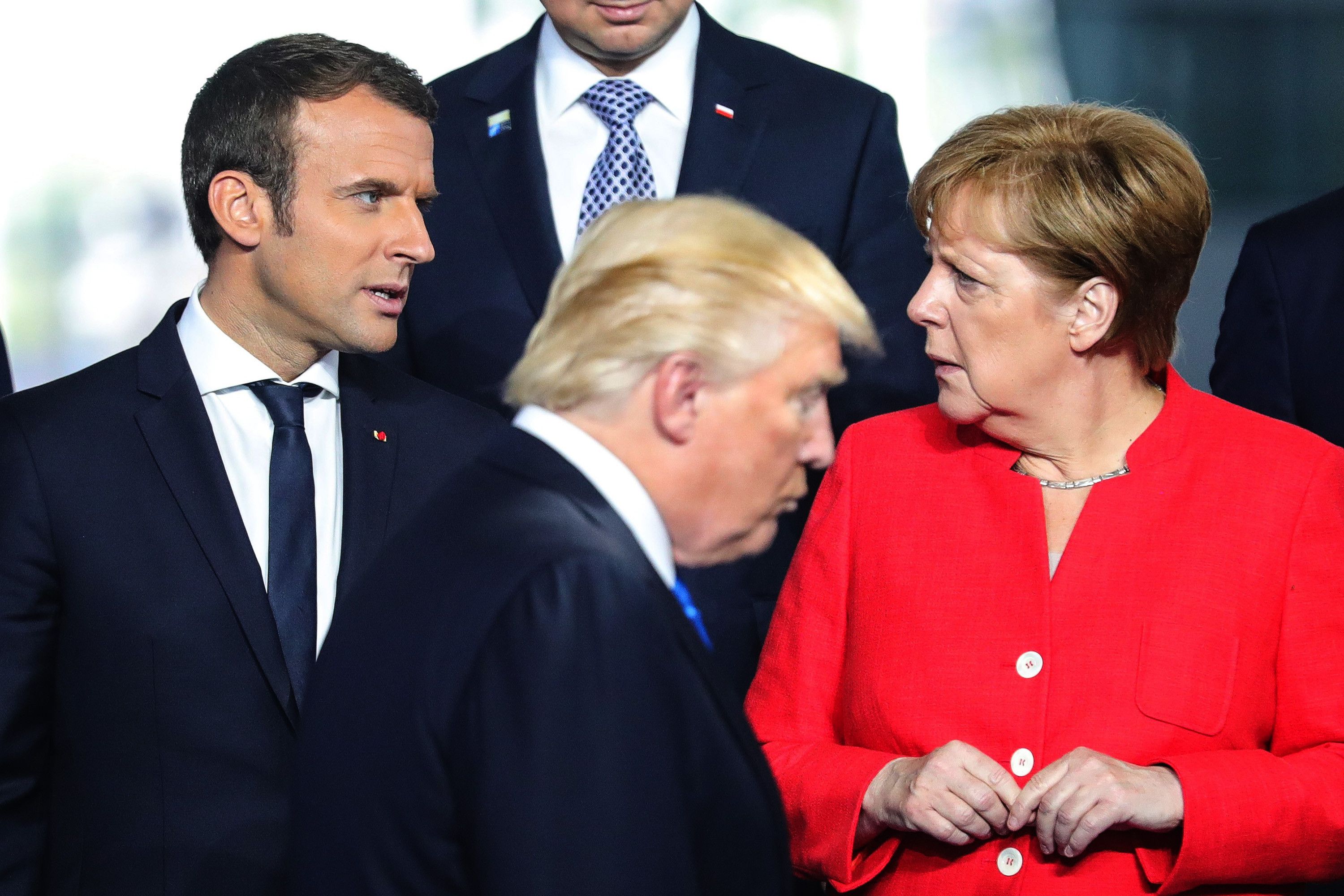
This June will be a key month for the White House. The Federal Reserve could raise interest rates between 25 and 50 basis points, at least that is the prospect that Doctor Janet Yellen, Chair of the Federal Reserve, has reiterated in the past few weeks, not to mention that the first review of GDP growth for the first quarter has been upwards. If the first estimates predicted growth of 0.7%, the review now puts it at a good 1.2%. Moreover, the GDP figures are sustained by positive numbers in the labour market, with an unemployment rate that continues to fall at the same time as the workforce increases. Can the Fed avoid putting up interest rates? Yes, it can decide to put off the rise if it believes that there is too much political instability, although Yellen’s discourse is too hawkish to believe that a postponement is viable.
Total war?
Foreign policy continues to be a headache. This week we saw two incidents related to North Korea. The first was the testing of a ballistic missile (ICBM) that fell into Japan’s exclusive economic zone, better known as the EEZ. An EEZ is an area of neutral sea prescribed by the United Nations giving special rights over the natural resources in the zone to a particular state (in this case Japan). It is not known whether there were human fatalities but the Pentagon confirmed what had been a rumour around Washington for months: a test was carried out to intercept ICBMs, an explicit message to Pyongyang that if the US has the capacity to intercept nuclear missiles, it could be willing to do so in Japan or South Korea. Even though all the defence experts I know agree that an all-out war with North Korea is unthinkable, the truth is that the Trump Administration is hinting at the opposite.
Tension with Europe
During his trip, President Trump stopped off in Europe and spoke to Emmanuel Macron and Angela Merkel. Even though the White House is calling the trip a success, the tension between Donald Trump and the European leaders was very clear, to the point that he openly attacked Merkel about the major trade deficit the US has with Germany while ignoring the deficit with China, which is much greater. Angela Merkel did not hold back and said that the US was no longer a trustworthy ally and that the EU will have to take care of itself. The impact of Merkel’s statements was devastating despite many analysts suggesting that the reason behind them is the German election campaign. However, US analysts point to another reason: Kremlingate.
According to these analysts, the NSA has called on its analysts all over the world to conserve all information on Donald Trump and his presidential campaign. They say that German intelligence is one of the most active in supplying information and that Donald Trump was in fact making a veiled threat to Angela Merkel.
Yet, the truth is that every day Kremlingate is making things a little worse for Donald Trump. The Washington Post reported on Saturday that Kushner, the husband of the President’s daughter, had contact with Russian Intel and asked to use Russian facilities to avoid the NSA. It is a monumental error because the NSA has intercepted the communications from the Russian embassy to Moscow asking for authorisation to grant Kushner’s demand.
Meanwhile, Congress’s Intelligence Committee has been activated and is working jointly with the Senate. James Comey will openly testify in Congress (and openly and behind closed doors in the Senate) and, according to CNN, he will claim that President Trump pressured him into closing the FBI investigation into Kremlingate.
Attorney General, Jeff Sessions, is also in a compromising position, as we learned that Congress has proof that he had more meetings with the Russian embassy to negotiate a reduction in sanctions in exchange for who knows what (spies to hurt Clinton?). What’s more, Congress has issued subpoenas to Michael Flynn and Michael Cohen, Donald Trump’s personal lawyer.
However, the most relevant thing is Michael Flynn’s change of attitude. Trump’s former National Security Advisor had until now refused to cooperate but this week announced he would provide documentation. As we explained a few weeks ago, there are rumours of a deal between Flynn and the FBI. This change of opinion could mean an agreement to implicate third parties. The New York Attorney General responded and ordered searches and arrests at Trump Tower, although it is information that is yet to be officially confirmed. Meanwhile, the White House Press Secretary has resigned and many journalists say that President Trump is very isolated and could soon fire staff.
Do we care about the polar bear?
The Paris Agreement on climate change has been the protagonist of the week. Both on campaign and in the White House, President Trump has been in favour of dropping the agreement, something he can do because Barack Obama only got the approval of Congress and not the Senate.
Many of the President’s advisors have urged him not to pull out. Some, like Elon Musk, CEO of Tesla and Space X, have linked their support of the President to remaining part of the Paris Agreement. Even his daughter Ivanka pleaded with him not to leave, as she says it will cause the United States to lose major power and influence. Finally, on Thursday afternoon (Washington DC time), Donald Trump appeared before the press to inform them of his decision. The United States will withdraw from the Paris Agreement on climate change.